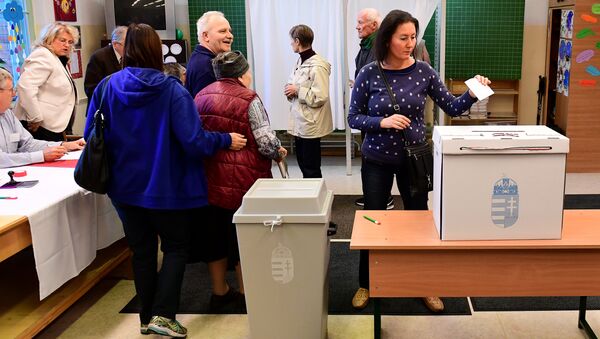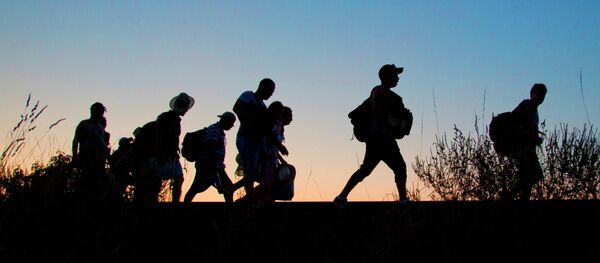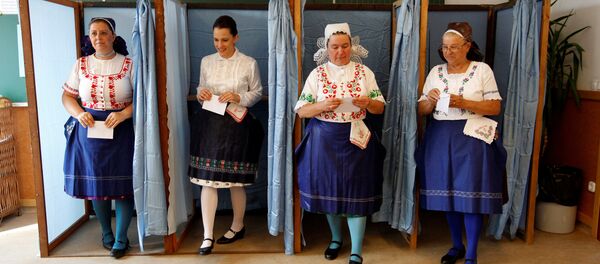“The failure of the referendum is good news because essentially the Hungarian government has spent tens of millions of euros to try to build up this massive campaign to hate refugees and against the collective European approach and they failed. They failed to interest enough people, to get them to the polls," Stroehlein said.
The HRW believes that the wide anti-migrants campaign, that included thousands of billboards, TV and radio ads, costed taxpayers the equivalent of over $18 million. Some local media suggest that approximately the same sum was spent solely on covering technical costs, such as printing the ballots and manufacturing ballot boxes for the referendum, with the overall costs reaching $47.3 million. Government promised to reveal how much it spent on the referendum preparation after the plebiscite.
"It is a complete shame that so much money had to be wasted but it it interesting to know that no matter how much propaganda the government put, people are still smart. They [the ruling Fidesz party] did everything they possibly could to get people to vote and 60 percent of people said NO, we are not buying into it," HRW representative said.
"I think, it [Hungary's referendum failure] is one small battle, the overall struggle is not over, there will be more flash-points, more elections, more referendums, more difficulties, and we should keep pushing as best as we can to make sure that some kind of decency and respect for human rights is maintained," Andrew Stroehlein concluded.
Hungarian Prime-Minister Victor Orban, the initiator of the EU-quotas referendum and a staunch opponent of the resettlement scheme, called the plebiscite results "excellent" despite the low turnout. According to Orban, the vote was the first step in Hungary's path to keep its exclusive right to decide on the Hungary's fate with "major battles and fierce conflicts awaiting" the country.
In September 2015, the European Commission announced a plan to relocate 160,000 migrants across the bloc depending on the size of each member-state, its population and socio-economic parameters. Under this scheme, Hungary must accept some 1300 refugees.




